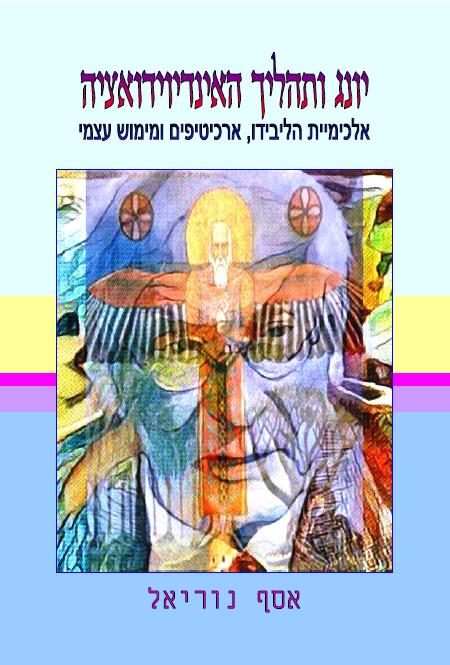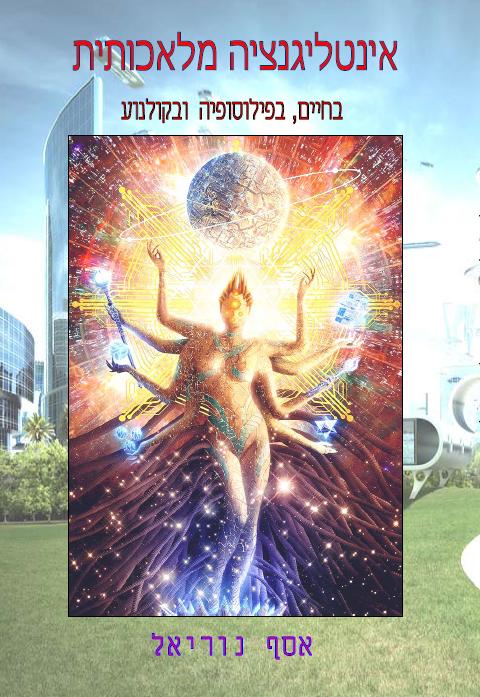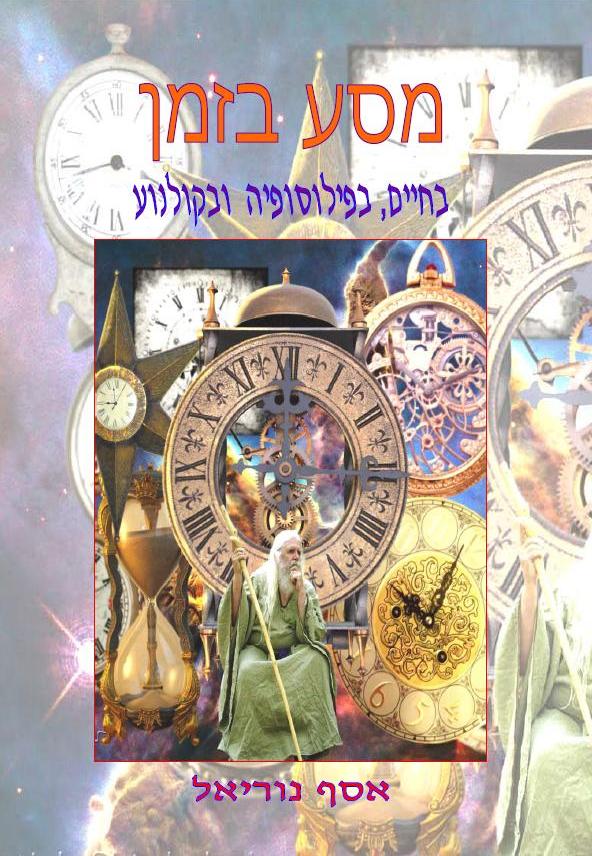The archetype series
The archetype series
Jung and the process of individuation - libido alchemy, archetypes and self-realization
Jung felt he was a messenger to preach to the world an ancient / new truth, about the possible connection between the conscious and the unconscious; Between the ordinary personality, who lives in relative reality, and the 'self', who lives in dreams and in the deep dimension of our lives. His Torah was formed from the inquiry of himself. He himself was the experimenter and the experimenter, the researcher and the laboratory. Found, his mission was also to describe the process he went through as an inspiring story. He himself became the living model for his message; The man and the message have merged, as they merge in every ‘great life’ that becomes a masterpiece. Jung made a great innovation for both the West and the East. For the West, he has rediscovered to him a living God - living within the soul within, and not in churches and religious establishments. For the East, he refused to turn his back on the world, to life as it appears and is meaningful to man living in the world, in exchange for abstract nirvana. To the west, Jung mentioned the 'living god' - to the east, he mentioned the 'living man'. 431 pages
₪110
The Warrior - in life, philosophy and cinema
The protagonist is the exception, the one who even when he is afraid like everyone else, he does not let fear paralyze him. He learns to turn fear and pain into friends, energetic Sami and valuable teachers. Adrenaline, the great drug, which nature uses to prepare the body for escape or attack, is the dragon on which the hero rides out of self-control. And so, when others run for their lives, he is left alone in the face of the threat. When others go into hysteria, he goes into meditation. When others break, it becomes more sturdy. 186 pages
₪84
The Archaeologist - in life, philosophy and cinema
The archaeologist invites us to embark on an adventure, which is also a sacred journey of initiation, to explore a fascinating mystery and come into contact with a supersensible, magical, colorful world, full of magical and dangerous beings. Above all, he reveals to us how much the past, which we thought was 'dead', is vibrant and full of life. Our archaeologist, as an archetype of the self, is no ordinary scholar. It belongs to the 'other reality' and takes an active part in it. For him, the past is fascinating because it is full of life and present in the 'here and now'. He is completely involved within the present. 225 pages
₪84
Detective - in life, philosophy and cinema
The detective is a fundamentally modern hero. He is unlike any character we have known in ancient mythology. He has no superpowers - only developed senses like a predator tracing prey. Indeed, if he mentions anyone from the ancient period, he is similar to a tribal hunter. He does not hunt for a living but to protect his tribe from dangerous predators, which have begun to see humans as a type of food or have gone mad. He must follow in their footsteps and capture them, so that they will not continue to lay their brunt on the members of the community. The detective as a man of law belongs to the archetype of justice, which we all carry within us as conscience and moral sense. This archetypal energy is uniquely sensitive to injustice and feels a deep need to preserve the cosmic balance between 'sin' and its 'punishment'. She wanted to protect the innocent and save them from all evil. She despises the exploitation, the parasites, the contempt for the lives of others. She easily identifies with the sufferer of no injustice in his palm and is willing to sacrifice himself to save him. 257 pages
₪84
The Magician - in life, philosophy and cinema
The magician archetype appears in every soul, even if not with the same intensity; It is endowed with superpowers, the explorer of the secrets of creation, in contact with the 'other reality', the masterpiece and miracle, capable of attaining the unbelievable. The magic. We feel the need to bring back to life the depth and magic that they once had. What is the message of magic to our lives? Do we feel this magic or do we want to bring it back to the world? Do we have powers over or at least an alchemical ability to see the magic that appears in things when the heart is open in love? 201 pages
₪84
The Vampire - in life, philosophy and cinema
בספר זה אנו פטורים מן הצורך להוכיח או להכחיש את קיומו העובדתי של הערפד. אין לנו סקרנות מיוחדת לאגדה, לפולקור או למעשיות עממיות. ואפילו הוא יצור זאולוגי של ממש, אנו מפקידים את מלאכת הקיטלוג המדעי והצייד שלו בידי מומחים לדבר. אנו חוקרים אותו כאן רק כמטאפורה פסיכולוגית-רוחנית ודמות 'צל' של עצמנו. לאמור, הוא גילום של הנפש האנושית בראי הדמיון והאידיאה. הוא השתקפות, אולי מעוותת אך ססגונית, של היבטים מסוימים בתת מודע שלנו, האישי והקולקטיבי. הערפד הוא ארכיטיפ, כח פעיל ויצירתי בנפשנו. 190 עמ'
₪84
The superhero - in life, philosophy and cinema
The multitude of heroes we have met over the generations in mythology, religion and art, is vast and will not tell much. Starting with the first gods of ancient myth, continuing with colorful and magical characters from the legend and folk tales and ending with the mighty superheroes and technology wizards of comics, born in the twentieth century. Although the new superhero was born in the modern age, he was inspired by a long tradition of works of archetypal imagination and pure fantasy, born throughout history. And as the natives of the comics pro and multiplied into their thousands until they inhabited an entire universe of characters, dimensions and timelines, it became clear to all that we inadvertently had a new mythology born, full of animals and magic, beautiful for our age. Like ancient mythologies, she not only reflects us but also shapes us in her image as a photographer. 204 pages
₪84
Artificial intelligence - in life, philosophy and cinema
The day when our Android will be equipped with an emotion chip and self-awareness is still far away. But the day when artificial intelligence will be able to stand the Turing test and deceive us by a sophisticated assimilation of human intelligence, emotion and awareness, is just around the corner. We open up to our Android and our complex emotions as we do to almost everything in our lives. In any case, even if it is nothing more than a sophisticated mechanical toy, once it has acquired a kind of personality and life unique to it, our behavior towards it will reflect us for better or worse with an embarrassing degree of exposure. Our fear and vision, our hatred and love, sex and violence may not affect him at all, but they will be reflected from his reflection as if from a bright aspecarlia. 245 pages
₪84
Genetic engineering - in life, philosophy and cinema
A huge biotechnological revolution is knocking on our door. It has already changed our lives beyond recognition, but its impact on our children will be so extreme that it can be considered a pure fantasy. As usual, the blessing and horror of modern biology are bound together and they demand from us a thorough clarification. In another aspect, we return to the world of myth in a modern update. For the first time, we are able to fulfill the visions of mythology in a scientific way, accessible to all of us, not just individuals of virtue, lovers of the gods or geniuses of meditation. 201 pages
₪84
Time travel - in life, philosophy and cinema
Is time travel at all possible? And I mean, a real journey in the timeline, forward or backward, to history or to the future? Admittedly, fantasy and science fiction writers assure us that this time travel is not only possible, but has already come to fruition. But what do the physics geniuses of ordinary science say about this? Second, if it is possible, how can it be implemented? Are we able to build a time machine or use some other means to travel backwards or forwards in time? And a third question, which is no less important to any sane person: Assuming that this journey is possible and we are able to carry it out, should we make it? 205 pages
₪84
The Whisperer to the Spirits - in life, philosophy and cinema
A medium-sized person, able to see or converse with the dead is today known as the 'whisperer to the spirits'. He is endowed with a 'sixth sense' to see the 'hidden reality'. Perhaps this 'supersensible' talent is in all of us but often in a dormant state. In the whisperer to the spirits this sense is active and allows him to perceive 'another world'. He is able to cross the border between the 'Middle Land' - the three-dimensional reality, perceived by the senses, to enter that ghostly kingdom of souls and visit Sheol even before his death. Thus he becomes the essential 'link' between the living and the dead capable of carrying messages from here to there and back. 241 pages
₪84










